#Gloria Milland
Photo

(via PEPLUM TV: Image of the week!)
Briseis (Gloria Milland) is about to find out what Achilles (Gordon Mitchell) is made of in FURY OF ACHILLES (1962)
13 notes
·
View notes
Text

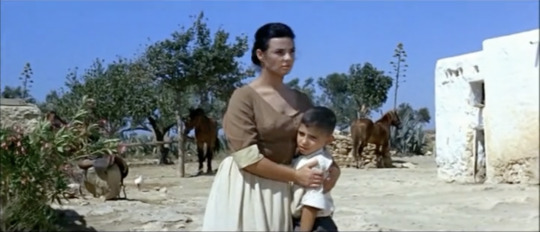
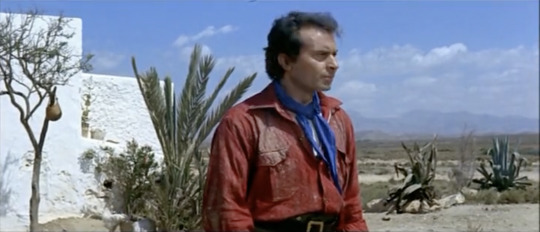
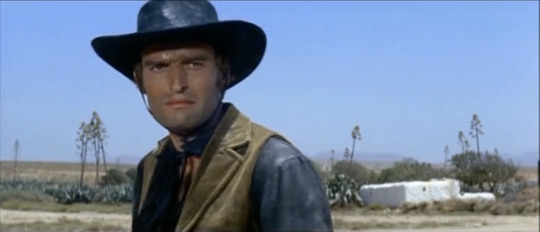
Gloria Milland, Miguel Palenzuela and Robert Hundar in Cortijo De La Hoya Altica. "Three Ruthless Ones" aka El Sabor de la Venganza by Joaquín Luis Romero Marchent (1963) CaboDeGata, Almeria. 📽️ 🎬
#Three Ruthless Ones#El Sabor de la Venganza#Joaquín Luis Romero Marchent#almeria#robert hundar#Gloria Milland#Miguel Palenzuela#Cortijo De La Hoya Altica#cabo de gata#cinema#western
0 notes
Text
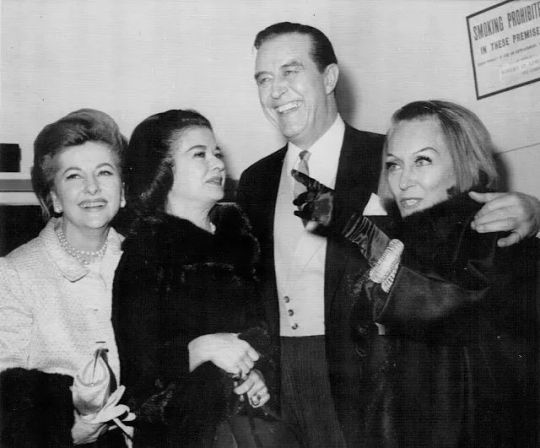
10 notes
·
View notes
Text
AU SOMMET DE LA PARAMOUNT
En difficulté pendant les années 1930, la Paramount battra tous les records de recettes au lendemain de la guerre : un redressement spectaculaire dû à une gestion aussi avisée que clairvoyante.
Vers le milieu des années 1930, la Paramount est au bord de la faillite. Pour les actionnaires, “l’usine à rêves” tourne au cauchemar… En 1935, les administrateurs décident donc d’évincer le tout puissant…

View On WordPress
#barbara stanwyck#billy wilder#bing crosby#Cecil B. DeMille#dorothy lamour#fred macmurray#gary cooper#ginger rogers#gloria swanson#marlene dietrich#mary martin#preston sturges#ray milland#veronica lake
1 note
·
View note
Photo

Ray Milland and Howard Da Silva in The Lost Weekend (Billy Wilder, 1945)
Cast: Ray Milland, Jane Wyman, Philip Terry, Howard Da Silva, Doris Dowling, Frank Faylen. Screenplay: Charles Brackett, Billy Wilder, based on a novel by Charles R. Jackson. Cinematography: John F. Seitz. Art direction: Hans Dreier, A. Earl Hedrick. Film editing: Doane Harrison. Music: Miklós Rózsa.
If such a thing as conscience could be ascribed to the Academy of Motion Picture Arts and Sciences, it might be said that giving The Lost Weekend and director Billy Wilder the best picture and best director Oscars was an attempt to atone for its failure to honor Wilder's Double Indemnity with those awards the previous year. (The awards went to Leo McCarey and his saccharine Going My Way.) The Lost Weekend is not quite as enduring a film as Double Indemnity: It pulls its punches with a "hopeful" ending, though it should be clear to any intelligent viewer that Ray Milland's Don Birnam is not going to be so easily cured of his alcoholism as he and his girlfriend, Helen St. James (Jane Wyman), seem to think. But the film also lands quite a few of its punches, thanks to Milland's Oscar-winning performance and the intelligent (and also Oscar-winning) adaptation of Charles R. Jackson's novel by Wilder and co-writer Charles Brackett. For its day, still under the watchful eyes of the Paramount front office and the Production Code, The Lost Weekend seems almost unnervingly frank about the ravages of alcoholism, then usually treated more as a subject for comedy than for semi-realistic drama. The Code prevented the film from ascribing Birnam's drinking to an attempt to cope with his homosexuality, but in some respects this can be seen today as a good change made for the wrong reason, since the roots of addiction to alcohol are far more complicated than any simplistic explanation such as self-loathing. The Code was also powerless to prevent Wilder and Brackett from finessing the suggestion that the friendly "bar girl" Gloria (Doris Dowling) is anything but an on-call sex worker. Increasingly, post-World War II films would treat audiences like the adults the Code administration wanted to prevent them from being. Wyman's Helen is a bit too noble in her persistent support of Birnam's behavior -- she moves from ignorance to denial to enabling to self-sacrifice far too swiftly and easily. But in general, the supporting cast -- Phillip Terry as Birnam's brother, Howard Da Silva as the bartender, Frank Faylen as the seen-it-all-too-often nurse in the drunk ward -- are excellent. The score by Miklós Rózsa is laid on a bit too heavily, especially in the use of the theremin to suggest Birnam's aching need for a drink.
2 notes
·
View notes
Video
youtube
Zoro z trzema mieczami (western, 1963) Guy Stockwell, Gloria Milland, Mi...
0 notes
Text
The Lodger and "Yours Truly, Jack the Ripper"


The middle film of a trio of Gothic horrors John Brahm directed for 20th Century-Fox in the 1940s, THE LODGER (1944, YouTube) improves on the first, THE UNDYING MONSTER (1942), but can’t hold a candle to the third, HANGOVER SQUARE (1945). Brahm and cinematographer Lucien Ballard copy some compositions from Fritz Lang’s great M (1932) with good reason. Both films are about the effect of s serial killer’s rampage on the city he ravages. Where the Lang focused on a child killer (Peter Lorre) whose compulsions are part of the film’s despondent world view, however, Brahm’s picture seeks to explain away Jack the Ripper (Laird Cregar) by having him kill former actresses because his beloved brother drank himself to death after an actress betrayed him. That’s all too pat to be believable in any but Hollywood terms, which manages to diminish the horror while also suggesting repressed homosexuality as the killer’s deeper motive. Which angers him more — that his brother died or that his brother preferred the actress’ company to his? Cregar is very good as the killer, wisely underplaying a lot of his early scenes, and Brahm shoots him to great effect. He looms over the other actors. Ballard fills the screen with shadows that heighten the sense of ambiguity about his character. And there are two good performances from Sara Allgood and Cedric Hardwicke as the couple renting rooms to Cregar. The real problem here is the casting of Merle Oberon as their niece, a music hall star who captures his fancy and incites his ire. She’s a competent actress and can be quite good in the right material. But her two musical numbers (dubbed) are limp noodles. She doesn’t have a dancer’s grace. It’s obvious the chorus girls are doing all the heavy lifting in what amounts to Mae West choreography (they dance, she moves in front of them), and her most strenuous moves are done in long shot and look doubled. Nor does she have the kind of charisma to suggest she could have been a musical star. Hell, she couldn’t even open for Luise Rainer in THE GREAT ZIEGFELD (1936).
My friend and I followed this with an appropriate THRILLER episode, “Yours Truly, Jack the Ripper” (1961, YouTube), well-directed by Ray Milland from a script by Barre Lyndon, who also adapted THE LODGER, this time drawing on a Robert Bloch story. Here Jack is haunting a modern American city, performing ritual murders to keep himself young. The focus is on British expert John Williams, who’s been tracking Jack’s Satanic murders for 30 years, but the real fun is in the supporting cast. Gloria Blondell (Joan’s sister) is a victim’s neighbor more concerned about the newspapers’ getting her name right than with her friend’s demise (sounds like a Wits End Players sketch), while Adam Roarke and Ottola Nesmith play eccentric artists in a salon run by police psychiatrist Donald Woods. The piece has some ridiculous moments, with Williams’ cigarette standing at attention as he watches stripper Beverly Hills, but it also has a great early score by Jerry Goldsmith.
#horror films#horror tv#jack the ripper#laird cregar#john brahm#merle oberon#sara allgood#cedric hardwicke#john williams#jerry goldsmith#ray milland
0 notes
Text
hollywood's happiest couple
the films of billy wilder (writer&director) and charles brackett (writer&producer)

Bluebeard’s Eighth Wife (1938).
Director: Ernst Lubitsch.
Cast: Claudette Colbert. Gary Cooper. Edward Everett Horton. David Niven.
Screenplay: Charles Brackett and Billy Wilder. From the play by Alfred Savoir; English-language adaptation by Charlton Andrews.
That Certain Age (1938).
Director: Edward Ludwig.
Cast: Deanna Durbin. Melvyn Douglas. Jackie Cooper. Nancy Carroll. Irene Rich.
Screenplay: Bruce Manning. From an original story by F. Hugh Herbert. Charles Brackett and Billy Wilder received no screen credit for their work on That Certain Age.
Ninotchka (1939).
Director: Ernst Lubitsch.
Cast: Greta Garbo. Melvyn Douglas. Ina Claire. Bela Lugosi.
Screenplay: Charles Brackett, Billy Wilder, and Walter Reisch. From an original story by Melchior Lengyel.
Midnight (1939).
Director: Mitchell Leisen.
Cast: Claudette Colbert. Don Ameche. John Barrymore. Mary Astor.
Screenplay: Charles Brackett and Billy Wilder. From a story by Edwin Justus Mayer and Franz Schulz.
What a Life (1939).
Director: Theodore Reed.
Cast: Jackie Cooper. Betty Field. John Howard. Janice Logan.
Screenplay: Charles Brackett and Billy Wilder. From the play by Clifford Goldsmith.
Arise, My Love (1940).
Director: Mitchell Leisen.
Cast: Claudette Colbert. Ray Milland. Dennis O’Keefe. Walter Abel.
Screenplay: Charles Brackett and Billy Wilder. Adaptation by Jacques Théry, itself from an original story by Hans Székely and Benjamin Glazer.
French Without Tears (1940).
Director: Anthony Asquith.
Cast: Ray Milland. Ellen Drew. Janine Darcey. David Tree. Roland Culver.
Screenplay: Ian Dalrymple, Terence Rattigan, and Anatole de Grunwald. Brackett and Wilder worked on the story treatment.
Ball of Fire (1941).
Director: Howard Hawks.
Cast: Gary Cooper. Barbara Stanwyck. Oskar Homolka. Henry Travers. S.Z. Sakall.
Screenplay: Charles Brackett and Billy Wilder. From an original story by Wilder and Thomas Monroe.
Hold Back the Dawn (1941).
Director: Mitchell Leisen.
Cast: Charles Boyer. Olivia de Havilland. Paulette Goddard.
Screenplay: Charles Brackett and Billy Wilder. From Ketti Frings’ story “Memo to a Movie Producer.”
The Major and the Minor (1942).
Director: Billy Wilder.
Cast: Ginger Rogers. Ray Milland. Rita Johnson. Robert Benchley. Diana Lynn.
Screenplay: Charles Brackett and Billy Wilder. From the play by Edward Childs Carpenter, itself based on a story by Fanny Kilbourne.
Five Graves to Cairo (1943).
Director: Billy Wilder.
Associate Prod.: Charles Brackett.
Cast: Franchot Tone. Anne Baxter. Akim Tamiroff. Erich von Stroheim. Peter van Eyck.
Screenplay: Charles Brackett and Billy Wilder. From the play by Lajos Biró.
The Lost Weekend (1945).
Director: Billy Wilder.
Prod.: Charles Brackett.
Cast: Ray Milland. Jane Wyman. Phillip Terry. Howard Da Silva. Doris Dowling. Frank Faylen.
Screenplay: Charles Brackett and Billy Wilder. From the novel by Charles R. Jackson.
The Bishop’s Wife (1947).
Director: Henry Koster.
Cast: Cary Grant. Loretta Young. David Niven. Gladys Cooper. Monty Woolley. James Gleason. Elsa Lanchester.
Screenplay: Robert E. Sherwood and Leonardo Bercovici. From the novel by Robert Nathan.
Charles Brackett and Billy Wilder received no screen credit for their work on The Bishop’s Wife.
A Foreign Affair (1948).
Director: Billy Wilder.
Prod.: Charles Brackett.
Cast: Jean Arthur. Marlene Dietrich. John Lund. Millard Mitchell.
Screenplay: Charles Brackett, Billy Wilder, and Richard L. Breen. Adaptation by Robert Harari. From an original story by David Shaw.
The Emperor Waltz (1948).
Director: Billy Wilder.
Prod.: Charles Brackett.
Cast: Bing Crosby. Joan Fontaine. Roland Culver.
Screenplay: Charles Brackett and Billy Wilder.
Sunset Blvd. (1950).
Director: Billy Wilder.
Prod.: Charles Brackett.
Cast: William Holden. Gloria Swanson. Erich von Stroheim. Nancy Olson. Fred Clark. Cameos: Hedda Hopper. Cecil B. DeMille. Anna Q. Nilsson. Buster Keaton. H.B. Warner.
Screenplay: Charles Brackett, Billy Wilder, and D.M. Marshman Jr.
1 note
·
View note
Photo
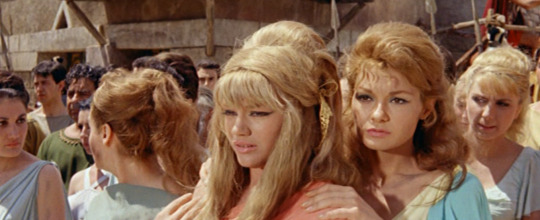
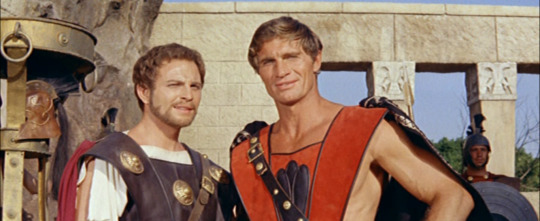
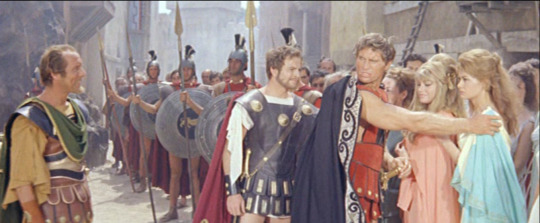
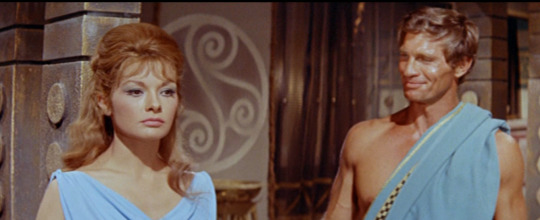
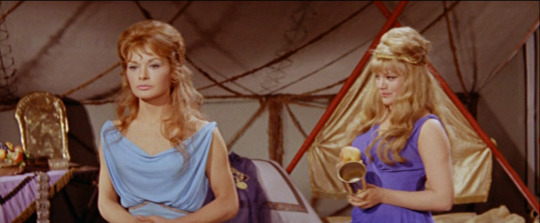
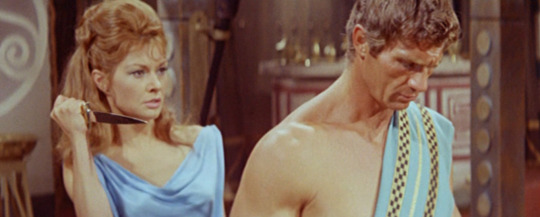
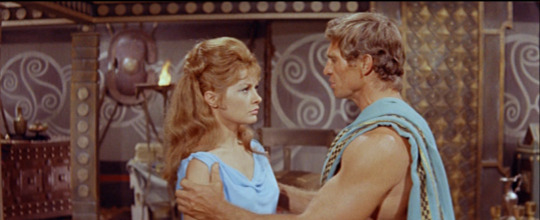
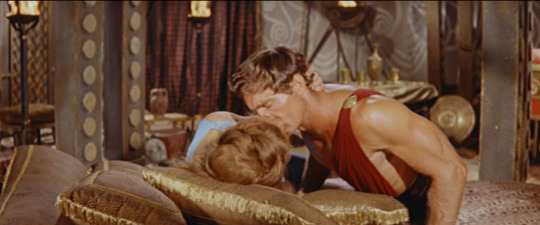
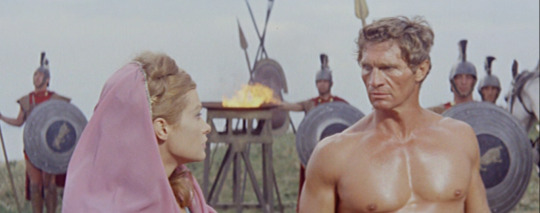
L'ira di Achille (1962)- Achilles & Briseis
#l´ira di achille#achille#achilles#achilles x briseis#briseis#gordon mitchell#gloria milland#the illiad#troy#war of troy#aquiles#briseida#homer#greek myth#peplum#classic cinema#classic hollywood#1962#60s#classic
17 notes
·
View notes
Photo
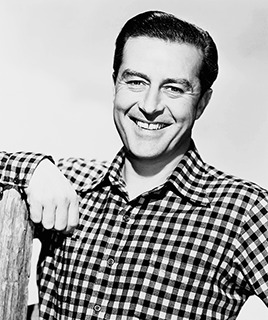
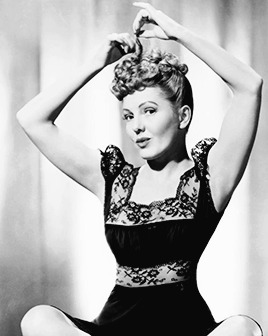

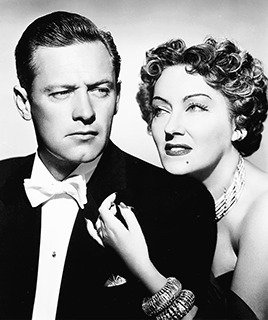
PSD #3. A black and white suited for photoshoots/publicity images. Adjust what you need. All I ask is that you please like/reblog if you download. Thank you! Download super_psd-3.psd from uDrop
#ray milland#jean arthur#paulette goddard#william holden#gloria swanson#oldhollywoodedit#old hollywood#classichollywoodedit#classic hollywood#psds#psd#black and white psd#b&w psd#black and white#b&w#vintage#photoshoot#photoshop resources#resources#edit#edits#photoset#mine#mine: edits#*
8 notes
·
View notes
Text
OLD HOLLYWOOD STARS & THEIR ZODIAC SIGNS
Aries: Gregory Peck, Spencer Tracy, Bette Davis, Joan Crawford, William Holden, Doris Day, Anthony Perkins, Debbie Reynolds, Ann Miller, Billie Holiday, Karl Malden, Warren Beatty, Marlon Brando, Charlie Chaplin, Mary Pickford, Lon Chaney, Steve McQueen, Ed Begley, Melvyn Douglas, Alec Guinness, Leslie Howard, Jayne Mansfield
Taurus: Jimmy Stewart, Fred Astaire, Bing Crosby, Audrey Hepburn, Katharine Hepburn, Don Rickles, Orson Welles, Tyrone Power, Rudolph Valentino, Gary Cooper, Henry Fonda, Shirley MacLaine, Shirley Temple, Anthony Quinn, James Mason, Ella Fitzgerald, Lionel Barrymore, Phil Silvers, Jack Klugman, Harold Lloyd, Mary Astor, Simone Simon, Margaret Sullavan, Eve Arden
Gemini: Judy Garland, Bob Hope, Dean Martin, Errol Flynn, Laurence Olivier, Marilyn Monroe, John Wayne, Tony Curtis, Rosemary Clooney, Douglas Fairbanks, Burl Ives, Al Jolson, Stan Laurel, Vincent Price, Basil Rathbone, Rosalind Russell, Hattie McDaniel, Priscilla Lane, Josephine Baker, Jeanette MacDonald, Peggy Lee
Cancer: Ginger Rogers, Eva Marie Saint, Natalie Wood, Olivia de Havilland, Barbara Stanwyck, Lena Horne, Jimmy Cagney, Milton Berle, Yul Brynner, Peter Lorre, Red Skelton, Jane Russell, Gina Lollobrigida, Leslie Caron, Farley Granger
Leo: William Powell, Myrna Loy, Mae West, Clara Bow, Norma Shearer, Esther Williams, Walter Brennan, Robert Mitchum, Louis Armstrong, Peter O’Toole, Jack Haley, Bert Lahr, Alfred Hitchcock, Maureen O’Hara, Lucille Ball, Shelley Winters, Dolores del Rio
Virgo: Lauren Bacall, Gene Kelly, Sophia Loren, Claudette Colbert, Greta Garbo, Donald O’Connor, Ingrid Bergman, Peter Lawford, Fredric March, James Coburn, Fred MacMurray, Peter Sellers, Raquel Welch, George Chakiris, Vera Miles
Libra: Jean Arthur, Carole Lombard, Montgomery Clift, Rita Hayworth, Deborah Kerr, Charlton Heston, Mickey Rooney, Lillian Gish, Groucho Marx, Buster Keaton, Bela Lugosi, George C. Scott, Lenny Bruce, Walter Pidgeon, Greer Garson, Joan Fontaine, Brigitte Bardot, June Allyson, Julie London
Scorpio: Richard Burton, Rock Hudson, Vivien Leigh, Burt Lancaster, Gene Tierney, Grace Kelly, Claude Rains, Joel McCrea, Johnny Carson, Burgess Meredith, Hedy Lamarr, Eleanor Powell, Veronica Lake
Sagittarius: Frank Sinatra, Kirk Douglas, Sammy Davis Jr, Edward G. Robinson, Rita Moreno, Lee Remick, Boris Karloff, Lee J. Cobb, Ricardo Montalban, Irene Dunne, Agnes Moorehead, Gloria Grahame, Betty Grable, Julie Harris
Capricorn: Cary Grant, Humphrey Bogart, Ava Gardner, Marlene Dietrich, Loretta Young, Ethel Merman, Eartha Kitt, Janet Leigh, Lew Ayres, Ray Bolger, Sal Mineo, Danny Kaye, Oliver Hardy, Oscar Levant, Ray Milland, Elvis Presley, Jane Wyman, Kay Francis, Barbara Rush
Aquarius: Kathryn Grayson, James Dean, Paul Newman, Clark Gable, Jimmy Durante, Jack Benny, Lana Turner, Kim Novak, Ronald Colman, Ernest Borgnine, Randolph Scott, Vera-Ellen, Donna Reed, Jack Lemmon, John Barrymore, George Burns, Arthur Kennedy, Cesar Romero, Jean Simmons, Zsa Zsa Gabor
Pisces: Jerry Lewis, Elizabeth Taylor, Jean Harlow, Nat King Cole, Sidney Poitier, Cyd Charisse, Lee Marvin, Jackie Gleason, Edward Everett Horton, David Niven
#us earth signs stay winning#i'm a taurus just for reference#LOL#old hollywood#tag#zodiac signs#zodiac tag#astrology#vintage#old hollywood zodiac signs#jimmy stewart#audrey hepburn#katharine hepburn#classic hollywood#movie stars#humphrey bogart#star signs#aries#taurus#gemini#cancer#leo#virgo#libra#scorpio#sagittarius#capricorn#aquarius#pisces#cary grant
274 notes
·
View notes
Photo
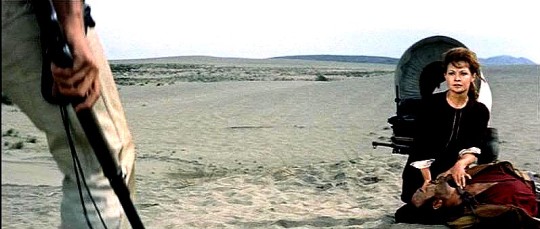
“Hour of death” AKA Antes llega la muerte by Joaquín Luis Romero Marchent (1964) Jesús Puente and Gloria Milland in Dunas de Cabo de Gata #Almeria
#hour of death#joaquin luis romero marchent#jesus puente#gloria milland#antes llega la muerte#dunas#cabo de gata#Almeria#cinema#western
1 note
·
View note
Text
BU YIL İZLEYECEĞİM FİLM LİSTESİ
1.) Animals with the Tollkeeper - Hayvanlar, Melekler ve İnsanlar (1998) / Fantastik
Ø Yönetmen : Michael Di Jiacomo / Oyuncular : Tim Roth, Mili Avital, Rod Steiger
2.) Andrey Rublyov - Andrei Rublev (1966) / Dram, Biyografik
Ø Yönetmen : Andreï Tarkovski / Oyuncular : Anatoli Solonitsyne, Tamara Ogorodnikova, Ivan Bykov
3.) Back to the Future - Geleceğe Dönüş (Seri Film I, II, III) / (1985) / Bilimkurgu, Macera
Ø Yönetmen : Robert Zemeckis / Oyuncular : Michael J. Fox, Christopher Lloyd, Lea Thompson
4.) Twelve Angry Men - 12 Öfkeli Adam (1957) / Dram
Ø Yönetmen : Sidney Lumet / Oyuncular : Henry Fonda, Martin Balsam, John Fiedler
5.) Krótki film o zabijaniu - Öldürme Üzerine Kısa Bir Film (1988) / Dram
Ø Yönetmen : Krzysztof Kieslowski / Oyuncular : Miroslaw Baka, Krzysztof Globisz, Jan Tesarz
6.) Krótki film o milosci - Aşk Üzerine Kısa Bir Film (1988) / Dram, Romantik
Ø Yönetmen : Krzysztof Kieslowski / Oyuncular : Grazyna Szapolowska, Olaf Lubaszenko, Stefania Iwinska
7.) Alice in den Städten - Alice Kentlerde (1974) / Dram
Ø Yönetmen : Wim Wenders / Oyuncular : Rüdiger Vogler, Yella Rottländer, Lisa Kreuzer
8.) Amadeus (1984) / Dramatik, Komedi, Tarihi
Ø Yönetmen : Milos Forman / Oyuncular : Tom Hulce, F. Murray Abraham, Simon Callow
9.) Before Sunrise - Gün Doğmadan Önce (1995) / Romantik
Ø Yönetmen : Richard Linklater / Oyuncular : Ethan Hawke, Julie Delpy, Andrea Eckert
10.) Being There - Merhaba Dünya (1979) / Dramatik, Komedi
Ø Yönetmen : Hal Ashby / Oyuncular : Peter Sellers, Shirley MacLaine, Melvyn Douglas
11.) Big Fish - Büyük Balık (2003) / Dramatik, Komedi, Fantastik
Ø Yönetmen : Tim Burton / Oyuncular : Ewan McGregor, Albert Finney, Jessica Lange
12.) Blow Up - Cinayeti Gördüm (1966) / Dram
Ø Yönetmen : Michelangelo Antonioni / Oyuncular : Jane Birkin, Gillian Hills, Julian Chagrin
13.) Blue Velvet - Mavi Kadife (1986) / Polisiye, Dram, Gerilim
Ø Yönetmen : David Lynch / Oyuncular : Isabella Rossellini, Kyle MacLachlan, Dennis Hopper
14.) Breaking the Waves - Dalgaları Aşmak (1996) / Dram, Romantik
Ø Yönetmen : Lars von Trier / Oyuncular : Emily Watson, Stellan Skarsgård, Jean-Marc Barr
15.) Chung Hing sam lam - Chungking Express (1994) / Dram
Ø Yönetmen : Wong Kar-Wai / Oyuncular : Brigitte Lin Ching-hsia, Tony Leung Chiu Wai, Faye Wong
16.) Dancer in the Dark - Karanlıkta Dans (2000) / Müzikal, Dram, Polisiye
Ø Yönetmen : Lars von Trier / Oyuncular : Björk, Catherine Deneuve, Peter Stormare
17.) Das Boot - Deniz Altı (1981) / Dram, Savaş Filmi
Ø Yönetmen : Wolfgang Petersen / Oyuncular : Jürgen Prochnow, Erwin Leder, Herbert Grönemeyer
18.) Dead Man - Ölü Adam (1995) / Western, Dram
Ø Yönetmen : Jim Jarmusch / Oyuncular : Johnny Depp, Gary Farmer, Crispin Glover
19.) Delicatessen – Şarküteri (1991) / Komedi, Dram, Korku, Fantastik
Ø Yönetmen : Jean-Pierre Jeunet, Marc Caro / Oyuncular : Dominique Pinon, Karin Viard, Ticky Holgado
20.) Der Himmel Über Berlin - Berlin Üzerindeki Gökyüzü (1987) / Fantastik, Romantik
Ø Yönetmen : Wim Wenders / Oyuncular : Bruno Ganz, Solveig Dommartin, Otto Sander, Peter Falk
21.) Dial M. for Murder - Cinayet Var (1954) / Gerilim, Polisiye
Ø Yönetmen : Alfred Hitchcock / Oyuncular : Ray Milland, Grace Kelly, Robert Cummings
22.) Dogville (2003) / Gerilim, Dram
Ø Yönetmen : Lars von Trier / Oyuncular : Nicole Kidman, Paul Bettany, Patricia Clarkson
23.) Dolls – Bebekler (2002) / Dram, Romantik
Ø Yönetmen : Takeshi Kitano / Oyuncular : Hidetoshi Nishijima, Miho Kanno, Tatsuya Mihashi
24.) The Grapes of Wrath - Gazap Üzümleri (1940) / Dram
Ø Yönetmen : John Ford / Oyuncular : Henry Fonda, Jane Darwell, John Carradine
25.) Hable con ella - Konuş Onunla (2002) / Dram, Komedi, Romantik
Ø Yönetmen : Pedro Almodóvar / Oyuncular : Javier Cámara, Dario Grandinetti, Leonor Watling
26.) Hair - Bırak Güneş İçeri Girsin (1979) / Müzikal
Ø Yönetmen : Milos Forman / Oyuncular : Michael Jeter, Donald Alsdurf, John Savage
27.) Harold and Maude (1971) / Dram, Komedi, Romantik
Ø Yönetmen : Hal Ashby / Oyuncular : Ruth Gordon, Bud Cort, Vivian Pickles
28.) Idi i smotri - Gel ve Gör (1985) / Dram, Savaş Filmi
Ø Yönetmen : Elem Klimov / Oyuncular : Olga Mironova, Vladas Bagdonas, Juris Lumiste
29.) In the name of the father - Babam İçin (1993) / Dram
Ø Yönetmen : Jim Sheridan / Oyuncular : Daniel Day-Lewis, Pete Postlethwaite, Emma Thompson
30.) It's a Wonderful Life - Şahane Hayat (1946) / Komedi, Dram, Fantastik
Ø Yönetmen : Frank Capra / Oyuncular : James Stewart, Donna Reed, Lionel Barrymore
31.) Kes – Kerkenez (1969) / Dram
Ø Yönetmen : Ken Loach / Oyuncular : David Bradley, Colin Welland, Freddie Fletcher
32.) Ladri di biciclette - Bisiklet Hırsızları (1948) / Dram
Ø Yönetmen : Vittorio De Sica / Oyuncular : Lamberto Maggiorani, Enzo Staiola, Lianella Carell
33.) Land and Freedom - Ülke ve Özgürlük (1995) / Dram, Savaş Filmi
Ø Yönetmen : Ken Loach / Oyuncular : Ian Hart, Rosana Pastor, Frédéric Pierrot
34.) Lock, Stock and Two Smoking Barrels - Ateşten Kalbe Akıldan Dumana (1998) / Polisiye
Ø Yönetmen : Guy Ritchie / Oyuncular : Jason Statham, Nick Moran, Dexter Fletcher
35.) Los Amantes del Círculo Polar - Kutup Çizgisi Aşıkları (1998) / Dram
Ø Yönetmen : Julio Medem / Oyuncular : Najwa Nimri, Fele Martínez, Nancho Novo
36.) Ma nuit chez Maud - Maud’la Bir Gece (1969) / Dram
Ø Yönetmen : Eric Rohmer / Oyuncular : Jean-Louis Trintignant, Françoise Fabian, Marie-Christine Barrault
37.) The Miracle worker - Karanlığın İçinden (1962) / Dram, Biyografik
Ø Yönetmen : Arthur Penn / Oyuncular : Anne Bancroft, Patty Duke, Victor Jory
38.) Moulin Rouge! - Kırmızı Değirmen (2001) / Müzikal, Romantik
Ø Yönetmen : Baz Luhrmann / Oyuncular : Nicole Kidman, Ewan McGregor, John Leguizamo
39.) My Left Foot: The Story of Christy Brown - Sol Ayağım (1989) / Dram
Ø Yönetmen : Jim Sheridan / Oyuncular : Daniel Day-Lewis, Brenda Fricker, Alison Whelan
40.) Naked – Çıplak (1993) / Dram
Ø Yönetmen : Mike Leigh / Oyuncular : David Thewlis, Lesley Sharp, Claire Skinne
41.) Nema-ye Nazdik - Yakın Plan (1990) / Dram
Ø Yönetmen : Abbas Kiarostami / Oyuncular : Mohsen Makhmalbaf, Abolfazl Ahankhah, Mehrdad Ahankhah
42.) Network – Şebeke (1976) / Dram
Ø Yönetmen : Sidney Lumet / Oyuncular : Faye Dunaway, William Holden, Peter Finch
43.) Pink Floyd The Wall - Pink Floyd Duvar (1982) / Dram, Müzik
Ø Yönetmen : Alan Parker / Oyuncular : Bob Geldof, Christine Hargreaves, James Laurenson
44.) Pleasantville - Yaşamın Renkleri (1998) / Fantastik, Dramatik, Komedi
Ø Yönetmen : Gary Ross / Oyuncular : Tobey Maguire, Jeff Daniels, Joan Allen
45.) Pulp Fiction - Ucuz Roman (1994) / Polisiye, Gerilim
Ø Yönetmen : Quentin Tarantino / Oyuncular : John Travolta, Samuel L. Jackson, Uma Thurman
46.) Rain Man - Yağmur Adam (1988) / Komedi, Dram
Ø Yönetmen : Barry Levinson / Oyuncular : Dustin Hoffman, Tom Cruise, Valeria Golino
47.) Reconstruction - Yeniden Sev Beni (2003) / Dram
Ø Yönetmen : Christoffer Boe / Oyuncular : Nikolaj Lie Kaas, Maria Bonnevie, Krister Henriksson
48.) Rosemary's Baby - Rosemary’nin Bebeği (1968) / Korku, Dram, Gerilim
Ø Yönetmen : Roman Polanski / Oyuncular : Mia Farrow, John Cassavetes, Ruth Gordon
49.) Rumble Fish - Siyam Balığı (1983) / Aksiyon, Dram
Ø Yönetmen : Francis Ford Coppola / Oyuncular : Matt Dillon, Mickey Rourke, Diane Lane
50.) Secrets and Lies - Sırlar ve Yalanlar (1996) / Dram
Ø Yönetmen : Mike Leigh / Oyuncular : Brenda Blethyn, Marianne Jean-Baptiste, Timothy Spall
51.) Shichinin no samurai - Yedi Samuray (1954) / Macera
Ø Yönetmen : Akira Kurosawa / Oyuncular : Toshirô Mifune, Takashi Shimura, Keiko Tsushima
52.) Sin City - Günah Şehri (2005) / Aksiyon, Gerilim, Polisiye
Ø Yönetmen : Robert Rodriguez, Frank Miller, Quentin Tarantino / Oyuncular : Bruce Willis, Mickey Rourke, Jessica Alba
53.) Singin' in the Rain - Yağmur Altında (1952) / Müzikal, Komedi
Ø Yönetmen : Stanley Donen, Gene Kelly / Oyuncular : Jean Hagen, Gene Kelly, Debbie Reynolds
54.) The Sixth Sense - Altıncı His (1999) / Gerilim, Dram
Ø Yönetmen : M. Night Shyamalan / Oyuncular : Bruce Willis, Haley Joel Osment, Toni Collette
55.) Solaris (1972) / Fantastik, Bilimkurgu
Ø Yönetmen : Andreï Tarkovski / Oyuncular : Natalya Bondarchuk, Donatas Banionis, Jüri Järvet
56.) Some Like It Hot - Bazıları Sıcak Sever (1959) / Komedi, Romantik
Ø Yönetmen : Billy Wilder / Oyuncular : Marilyn Monroe, Tony Curtis, Jack Lemmon
57.) Spellbound - Öldüren Hatıralar (1945) / Gerilim, Polisiye
Ø Yönetmen : Alfred Hitchcock / Oyuncular : Gregory Peck, Ingrid Bergman, Leo G. Carroll
58.) Stalker (1979) / Dram, Bilimkurgu
Ø Yönetmen : Andreï Tarkovski / Oyuncular : Alexandre Kaidanovski, Anatoly Solonitsyn, Nikolai Grinko
59.) Strange Days - Tuhaf Günler (1995) / Bilimkurgu, Aksiyon
Ø Yönetmen : Kathryn Bigelow / Oyuncular : Ralph Fiennes, Angela Bassett, Juliette Lewis
60.) Sullivan's Travels (1941) / Macera, Dramatik, Komedi
Ø Yönetmen : Preston Sturges / Oyuncular : Eric Blore, Torben Meyer, Victor Potel
61.) Sunset Blvd. (1950) / Dram, Romantik
Ø Yönetmen : Billy Wilder / Oyuncular : William Holden, Gloria Swanson, Erich Von Stroheim
62.) Il Buono, il brutto, il cattivo - İyi, Kötü ve Çirkin (1966) / Western
Ø Yönetmen : Sergio Leone / Oyuncular : Clint Eastwood, Eli Wallach, Lee Van Cleef
63.) The Graduate – Mezun (1967) / Dramatik, Komedi
Ø Yönetmen : Mike Nichols / Oyuncular : Anne Bancroft, Dustin Hoffman, Katharine Ross
64.) The Hours – Saatler (2002) / Dram, Romantik
Ø Yönetmen : Stephen Daldry / Oyuncular : Nicole Kidman, Julianne Moore, Meryl Streep
65.) The Man Who Wasn't There - Orada Olmayan Adam (2001) / Polisiye, Dram
Ø Yönetmen : Joel Coen / Oyuncular : Peter Schrum, Billy Bob Thornton, Frances McDormand
66.) The Others – Diğerleri (2001) / Fantastik, Dram, Korku
Ø Yönetmen : Alejandro Amenábar / Oyuncular : Nicole Kidman, Elaine Cassidy, Christopher Eccleston
67.) The Truman Show -Truman Show (1998) / Dramatik, Komedi
Ø Yönetmen : Peter Weir / Oyuncular : Jim Carrey, Laura Linney, Natascha McElhone
68.) The Usual Suspects - Olağan Şüpheliler (1995) / Polisiye, Gerilim
Ø Yönetmen : Bryan Singer / Oyuncular : Chazz Palminteri, Kevin Spacey, Gabriel Byrne
69.) Thelma ve Louise (1991) / Dramatik, Komedi
Ø Yönetmen : Ridley Scott / Oyuncular : Susan Sarandon, Geena Davis, Harvey Keitel
70.) They Shoot Horses, Don't They? - Atları da Vururlar (1969) / Dram
Ø Yönetmen : Sydney Pollack / Oyuncular : Jane Fonda, Michael Sarrazin, Susannah York
71.) Trois couleurs - Üç Renk: Mavi, Beyaz, Kırmızı (1993) / Dram
Ø Yönetmen : Krzysztof Kieslowski / Oyuncular : Juliette Binoche, Hélène Vincent, Philippe Volter
72.) Trainspotting (1996) / Dram, Polisiye
Ø Yönetmen : Danny Boyle / Oyuncular : Ewan McGregor, Ewen Bremner, Jonny Lee Miller
73.) Une Femme est une femme - Kadın Kadındır (1961) / Komedi
Ø Yönetmen : Jean-Luc Godard / Oyuncular : Anna Karina, Jean-Claude Brialy, Jean-Paul Belmondo
74.) Vivre sa vie: Film en douze tableaux - Hayatını Yaşamak (1962) / Komedi, Dram
Yönetmen : Jean-Luc Godard / Oyuncular : Anna Karina, Sady Rebbot, Andre S. Labarthe
75.) Welcome to Sarajevo - Saraybosna’ya Hoşgeldiniz (1997) / Dram, Savaş Filmi
Ø Yönetmen : Michael Winterbottom / Oyuncular : Stephen Dillane, Woody Harrelson, Marisa Tomei
76.) What Ever Happened to Baby Jane? - Bebek Jane’e Ne Oldu? (1962) / Dram, Gerilim
Ø Yönetmen : Robert Aldrich / Oyuncular : Bette Davis, Joan Crawford, Victor Buono
77.) Smultronstället - Yaban Çilekleri (1957) / Dram
Ø Yönetmen : Ingmar Bergman / Oyuncular : Victor Sjöstrom, Bibi Andersson, Ingrid Thulin
78.) Z (1969) / Dram, Tarihi
Ø Yönetmen : Costa-Gavras / Oyuncular : Yves Montand, Jean-Louis Trintignant, Irène Papas
79.) Serenity (2019) / Dram, Gerilim
Ø Yönetmen : Steven Knight / Oyuncular : Matthew McConaughey, Anne Hathaway, Djimon Hounsou
80.) The Game – Oyun (1997) / Gerilim
Ø Yönetmen : David Fincher / Oyuncular : Michael Douglas, Sean Penn, Deborah Kara Unger
81.) Equus - Kör Atlar (1977) / Dram, Psikolojik, Gerilim
Ø Yönetmen : Sidney Lumet
82.) Englar Alheimsins - Evrenin Melekleri (2000) / Biyografi, Dram
Ø Yönetmen : Friðrik Þór Friðriksson
83.) The Official Story - Resmi Tarih (1985) / Dram, Savaş
Ø Yönetmeni : Luis Puenzo
84.) The Duellists – Düellocu (1977) / Dram, Savaş
Ø Yönetmeni : Ridley Scott
İZLECEĞİM DİZİLER
1.) Barbarians
2.) The Punisher
3.) Band of Brothers
4.) The Pacific
5.) Tut
6.) The Long Road Home
14 notes
·
View notes
Text
Mitchell Leisen: How’s About It?

Mitchell Leisen was a major American film director. He belongs in the first rank, not the second tier, where he has often been placed by those who value the scripts he was given by Preston Sturges and Billy Wilder and Charles Brackett more than what he actually did with those scripts. Leisen’s name was usually written in sloping cursive in his opening credits, and that set the mood for what he had to offer. His was a gentle style, a deliberately unobtrusive style, smooth and gliding, attentive to nuances, visual and emotional.
Leisen made a point of nearly always moving the camera only when it is following a character who is moving right along with it, and the edits in his movies are as invisible as possible. He made three films that are undisputed classics: Easy Living (1937), written by Sturges, Midnight (1939), written by Wilder and Brackett, and Remember the Night (1939), written by Sturges. All three of these classic Leisen movies are partly about pretending to be something you’re not in order to move up or over into another social atmosphere or class and take on a new identity, and this theme is something that always interested Leisen particularly.
He got his start making costumes and dressing sets for Cecil B. DeMille, and he also made costumes for Mary Pickford and Douglas Fairbanks. That training shows through in his later work, that sense of fantasy and beauty for its own sake. Leisen had a fetish for absolute authenticity when he did period pictures, and he took this fetish to nearly Erich Von Stroheim lengths if he had the money to spend. Remember the peacock headdress that he designed for Gloria Swanson in DeMille’s Male and Female (1919), or the sexy harem pants he put on Fairbanks for The Thief of Bagdad (1924), or the barely-there garments he designed for Claudette Colbert in The Sign of the Cross (1932) and you can get a first sense of Leisen’s aesthetic: hopeful, fantastical, erotic. And he was a pretender himself on some of these early movies because he was very skillful at making sets and crowd scenes look more opulent than they actually were given some of the budgets he had to work with.
He took the reins from nominal director Stuart Walker for two films that proved his range: Tonight Is Ours (1933), a high comedy that begins with a sexy masked ball, and The Eagle and the Hawk (1933), as grim and concentrated an anti-war film as you will find from this era. Leisen next graduated to prestige pictures like Cradle Song (1933) and Death Takes a Holiday (1934), with its high-flown Maxwell Anderson script. Leisen was fond of Death Takes a Holiday all his life, and he even wanted to re-make it in the late 1940s, but it has not held up as well as some of his lesser-known pictures from the 1930s.
After Murder at the Vanities (1934), a backstage movie with some odd musical numbers, Leisen took flight with three pictures that demonstrated the full scope of his talent. What makes a really great director, a major director? The ability to take a poor script, like the one Leisen was given for Behold My Wife! (1934), and make it into something that moves like a dream and seems inevitable. While you watch Behold My Wife!, there is a double consciousness of how outlandish and slapdash the plot and dialogue are and how Leisen transcends this through pacing, framing, and staging, so that there is always something to delight the eye. Leisen movies generally have a difficult-to-describe kind of creamy look, as if every person and table and chair were covered in the same sort of protective satin sheen.
He used a similarly fast, super-controlled pace for Four Hours to Kill! (1935), another backstage movie where Leisen himself plays the orchestra leader but you never see the numbers on stage. A kind of musical proto-noir, this movie depends on Richard Barthelmess, who is playing a criminal waiting to be taken to jail, and Leisen is alert to Barthelmess’s needs and sensitive to his big scene, where his character talks about his unhappy past. And then Leisen was given a script (by Norman Krasna) and two stars, Carole Lombard and Fred MacMurray, that were particularly congenial to his style, and the result was his first classic, Hands Across the Table (1935), a rather anguished comedy about love and the urge for security. Leisen had mastered form, and now he mastered the content that interested him, good-bad people navigating their own wants and desires and what they will do for them. For Leisen, mixed emotions are really the only emotions possible.
In all of his most characteristic films, Leisen’s characters are at a crisis point and need to decide to take a chance and see what they can get away with to become another version of themselves. There is lots of comedy in a situation like this, of course, but Leisen always hints at the dark underside of pretending. There is an American urge in these pictures that says, “What I say I am is what I am,” and that urge is usually naïve (think of early Joan Crawford heroines). Leisen looks at this urge from a height of sophistication, almost always warmly and tenderly, but sometimes he lets a really grim insight slip through. Think of Carole Lombard’s anti-social asides in Hands Across the Table, or that harrowing scene where Barbara Stanwyck goes home to her grudge-holding and cruelly puritanical mother in Remember the Night and you will feel the hurt that animates Leisen’s search for a created world of his own.
In many ways, the 1930s were Leisen’s best creative period, where he turned out beautifully balanced and finished entertainments like 13 Hours by Air (1936). He was a romantic who had a special way of visually enfolding the lovers in his movies that is almost Frank Borzage-like, and he glorifies very different women in what must be the best close-ups of their careers: look at some of the close-ups of the melancholy Sylvia Sidney in Behold My Wife! and then look at the close-ups of the wised-up Joan Bennett in 13 Hours by Air and see how Leisen gives them the same glamorizing treatment without ever losing what makes them so individual. Even pure assignments like Artists and Models Abroad (1938) glow with a kind of dreamlike assurance, as if to say, “Why shouldn’t a comedy look beautiful?”
And when Leisen had a meatier script, like Swing High, Swing Low (1937), which also starred Lombard and MacMurray, he was capable of virtuoso work that blended comedy and drama so seamlessly that it’s difficult to tell where one leaves off and the other begins. He did some Sturges-like slapstick for Easy Living, including the famous automat scene where the windows fly open and everybody grabs at the food, which was his idea. But for Remember the Night, Leisen pared down the Sturges script, cutting unnecessary scenes and verbose dialogue until he had what he wanted, a portrait of a hard-boiled woman who starts to long for the warmth of a “why not?” idealized mid-West home. Remember the Night is probably Leisen’s finest film, and a peak in his career, a comedy-drama or a dramatic comedy all whipped together until the consistency is exquisite and just right.
After the very sensitive Hold Back the Dawn (1941), a Wilder-Brackett script about a hard-boiled male gigolo (Charles Boyer) pretending to love a sheltered, repressed girl (Olivia de Havilland) until his feelings actually become genuine, Leisen’s career settled in for a few years to minor comedies, as if wartime austerity had affected his budgets, his scripts, and his imagination. In 1944, he did two movies in color, Lady in the Dark and Frenchman’s Creek, one anti-feminist and one feminist, and both rather nightmarishly disconnected and self-indulgent.
Leisen was going through a crisis in his personal life by the mid-1940s, and it showed in his work. He was mainly gay, but he didn’t want to be, and so he had married a fledgling opera singer (“a horror” according to the sharp-tongued Ray Milland) and he was carrying on a tortured affair with costumer Natalie Visart while also pursuing men. Leisen’s loyal secretary Eleanor Broder told David Chierichetti, the author of the definitive Leisen book, Mitchell Leisen: Hollywood Director, that her boss tried taking hormone shots at one point because he thought they might eradicate his homosexuality, but of course that didn’t work. Leisen lived with the pilot Eddie Anderson in the late 1930s, and Anderson left him for Shirley Ross, the actress who talk-sings “Thanks for the Memory” with Bob Hope in The Big Broadcast of 1938, an unusually sentimental scene within his work that Leisen insisted on. When that picture finished, he had a heart attack, and his health was never quite the same afterwards.
In the 1940s, after Visart had gotten pregnant with his child and lost it, Leisen took up with the dancer Billy Daniels, and his unhappiness grew. Daniels dances in what has to be Leisen’s worst feature, Masquerade in Mexico (1945), a semi-remake of Midnight that is so distracted and poorly timed that it would seem to give credence to Billy Wilder’s many complaints about Leisen over the years in interviews; if you were to watch Masquerade in Mexico right after Midnight, it would seem like a mark against Leisen as an artist in his own right rather than a servant of superior scripts where he could get them. Daniels is actually the only thing this movie has going for it: he’s an exciting dancer, and an intriguing screen presence, sexy, petulant, a little dangerous. Many in Leisen’s inner circle disliked Daniels, but maybe Masquerade in Mexico might work if it could just be Daniels dancing as Leisen watches.
The blandness of the décor in something like Suddenly It’s Spring (1947) is a real comedown from his Art Deco 1930s pictures, but Leisen rallied in this period with some of his best and most personal films, starting with Kitty (1945), a sumptuous Gainsborough period piece with all the trimmings and a Pygmalion subject that activates all of Leisen’s interest in pretending and “passing” as something you are not. Best of all from this time is Song of Surrender (1949), an uncommonly severe movie about a New England girl named Abigail (Wanda Hendrix) who finds a way out of her repressive environment by listening to music. What Abigail feels in Song of Surrender is surely what Leisen himself must have often felt as a young man growing up in the mid-West at the turn of the last century, and so this picture, which he said he didn’t much like, is his secret movie, his confession movie. It’s a great film, daringly stark and stripped-down, and it is as unerringly paced and controlled as all of his best 1930s work; there are moments when it feels like a precursor to Jane Campion’s The Piano (1993) in its insistence on the will power needed for a woman to find aesthetic and sexual fulfillment.
Leisen did an intriguing noir with Stanwyck called No Man of Her Own (1950) and an overlooked, charming adaptation of J. M. Barrie called Darling, How Could You! (1951), which is filled with longing for family life that Leisen certainly knows is a fantasy like any of his others. (How poignant it is when Joan Fontaine says in that movie that if her children are going to love her they mustn’t “think me over first.”) He spent twenty years working at Paramount Studios, and he was a creature of the studio system; when the studio system went, so did he, but not before one more diverting small musical, The Girl Most Likely (1958), which was the last feature made at RKO. “When the studio decided we no longer needed a certain department, it was shut down and if we needed something after that, we had to make do ourselves,” Leisen said. “It was really eerie.”
Ill-health and an unwarranted reputation for spending too much money kept Leisen mainly working for TV in his last years, so that he was back to low budgets and bringing in his own furniture to dress his sets. He had been fired from Bedevilled (1955) for hitting on one of the straight actors he was working with (the actor complained to MGM), and this put another shadow over his reputation. He had made Fred MacMurray’s career, but when he tried to get work as a director on MacMurray’s hit TV show My Three Sons, it was no go. “He sent me a telegram asking for the job,” MacMurray said. “He was, well, you know, a homosexual and he had gotten into some trouble on a picture he was making in Europe. With the three young boys we had working on the show, I just didn’t think it was right. So I never answered the telegram.”
It was his women who stayed loyal to Leisen in his final years, both his secretary Broder (who was a lesbian), and his old lover Natalie Visart, who had never really gotten over her love for him and came to stay with him toward the end (Visart’s son Peter was killed in a gay-bashing in the 1970s). Leisen’s responses to David Chierichetti’s questions in their interview book are unfailingly candid, insightful, and juicy, but his standing has never ascended to the level of that of Preston Sturges or Billy Wilder, even though his visual style was far more developed than theirs, and his point of view arguably more sophisticated and certainly more kind-hearted. He was a romantic with an edge of disquiet, and this made for matchlessly rich pictures, pulsing with hope and with pain.
Leisen knew about all aspects of picture making, and he has the requisite number of classics for entrance to the pantheon, plus a whole slew of other pictures of interest. He made Remember the Night and Song of Surrender. He made Midnight and Kitty. And he made Easy Living and Darling, How Could You! Those are all heights, and from different periods, and they prove the consistency of his inventiveness and the distinctiveness of his talent. His creativity came out of personal unhappiness on the one hand and unprecedented creative license and support under the old Hollywood studio system on the other. We will not see that particular combination again.
by Dan Callahan
10 notes
·
View notes
Text
Match Wits with Ellery Queen
Most of the fun in reading (or listening to) a detective story is the chance to play detective ourselves. We meet the suspects, process the clues, and weigh the evidence alongside the sleuth, and we have the chance to see if we can reach the same solution to the crime. But rarely do our fictional gumshoes pause mid-narrative to see where we are, to check in on the progress of our own investigation. One notable exception (for young readers, at least) is Encyclopedia Brown. Another is one of the biggest names in crime fiction - Ellery Queen. And like Encyclopedia Brown, Ellery is an amateur sleuth who helps his police detective father crack tough cases. Queen came to the airwaves in his own series of adventures on June 18, 1939.
Queen was the creation of mystery writer cousins Daniel Nathan (alias Frederic Dannay) and Manford Leopofsky (alias Manford Lee). They submitted a story for a contest in 1928, and they won but the magazine folded before the story could be published. The cousins shopped the story around, and the first Ellery Queen adventure was published in 1929. That first story, “The Roman Hat Mystery,” set out the elements of the character and the formula for his adventures. Ellery was a bit of a dilettante, an intellectual who solved crimes because their puzzles intrigued him. He was often called upon to assist his father, Inspector Richard Queen of the New York Police Department. Along with the inspector’s irascible Sgt. Velie, Ellery and his father tackled bizarre cases littered with red herrings and multiple suspects. One of the signature elements of the Ellery Queen stories was a “Challenge to the Reader,” a break in the action just before the solution was revealed. It explained that the reader had seen all of the clues, and there was only one possible solution to the crime. The character starred in over 30 novels written by Dannay and Lee, and the two would create the Ellery Queen Mystery Magazine in 1941; Ellery Queen is still being published today.
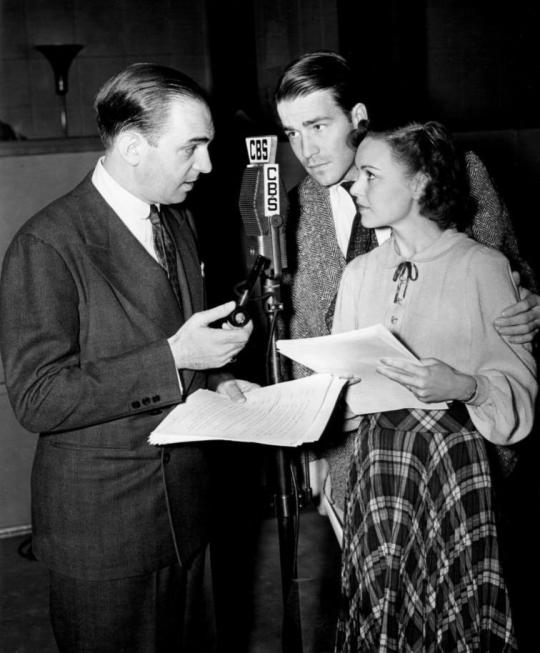
Ellery Queen first came to radio on CBS in 1939 with Hugh Marlowe in the title role. Though he was featured prominently in promotional photos and press, Marlowe was not credited as Queen during the run. This may have been done to maintain the illusion that “Ellery Queen” was a real figure, detective, writer, and publisher of the magazine. None of the actors who played Ellery on radio got the billing and on-air credit, even as their co-stars were identified by name with the characters they played. The radio series introduced a character who would become fixtures in the Ellery Queen mythology - Nikki Porter, Ellery’s secretary and Girl Friday (played in the first series by Marion Shockley). Nikki would remain in the cast for the rest of the radio runs, and she was incorporated into the Ellery Queen novels in 1943. The radio series retained Ellery’s amateur status, but he was less arrogant and insufferable. It was easy to see why his father would reach out to bring him in on cases. Though he still wasn’t two-fisted, nor did he carry a gun, Ellery Queen was human. He had Sherlock Holmes’ eye for detail, but he was less anti-social and aloof.
Like the stories, the radio series offered a challenge to audiences, but the radio series went a step farther and featured a stand-in for the audience during the broadcasts. A guest “armchair detective” would sit in and would discuss the case with “Ellery” and “Nikki” before the solution was revealed. Initially, the “guest detective” was a panel of mystery writers. Later, members of the studio audience were used (that idea was dropped because the audience members were far from adept at the microphone); eventually, one celebrity guest appeared in each show. Gloria Swanson, Mel Blanc, Victor Jory, Orson Welles, and Ed Sullivan are just a few of the guests who appeared and tried their deductive skills against those of Ellery Queen (and his creator - Manfred Lee co-wrote the series with Anthony Boucher for much of the run). Ellery Queen ran in multiple series over NBC, CBS, and ABC from 1942 until 1948. Carleton Young, Sidney Smith, Larry Dobkin (who later played Archie Goodwin on Nero Wolfe), and Howard Culver all starred (uncredited, of course) as Ellery Queen.
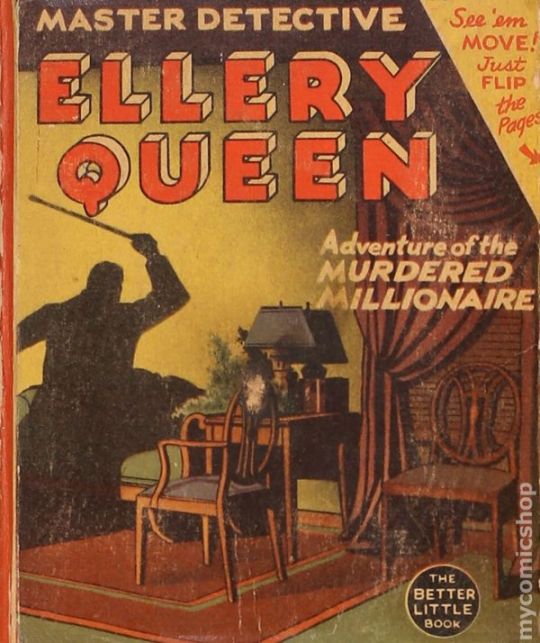
There were several TV versions in the 1950s, but the definitive Ellery Queen adaptation came nearly thirty years after the radio series took its final bow. In 1975, producers William Link and Richard Levinson (creators of Columbo and Murder, She Wrote, among others) brought Ellery Queen back to television in a great series that unfortunately lasted only one season. Jim Hutton starred as Ellery for 22 episodes with David Wayne as Inspector Queen. This Queen series was a period piece set in post-World War II New York. The setting allowed the producers to include several references to radio; a recurring character was an arrogant radio detective (played by John Hillerman, later Higgins on Magnum PI) who tried to out-think Queen and position himself as a master sleuth, and one episode featured threats to the life of a radio soap opera star played by Eve Arden of Our Miss Brooks. More radio era performers appeared on the series, including Howard Duff, John Dehner, Ida Lupino, and Ray Milland. Each episode boasted an all-star guest cast and a “challenge to the viewer” where Ellery broke the fourth wall right before the denouement to see if the audience had figured out the solution to that week’s mystery.
In some respects, even though he perhaps wasn’t as famous as some of his more hard-boiled brethren, Ellery Queen may have been the ideal detective for the radio era. Audiences tuned in to detective and mystery shows for the thrill of trying to solve the crime, but none of the other sleuths they followed took the time to ask them “have you figured it out yet?” Ellery Queen, on print, screen, and radio encouraged a spirit of cooperation and involvement in his adventures unlike any of the other detectives who cracked cases during the Golden Age of Radio.
4 notes
·
View notes
Photo
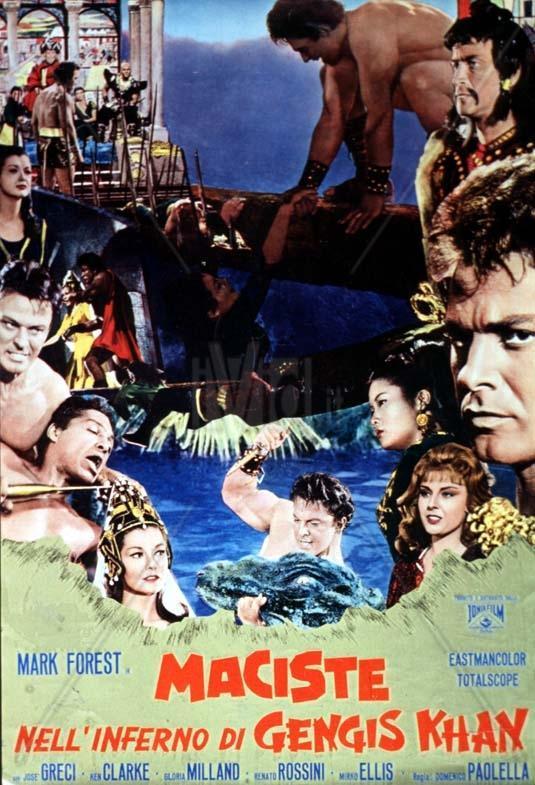
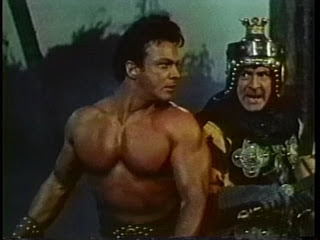
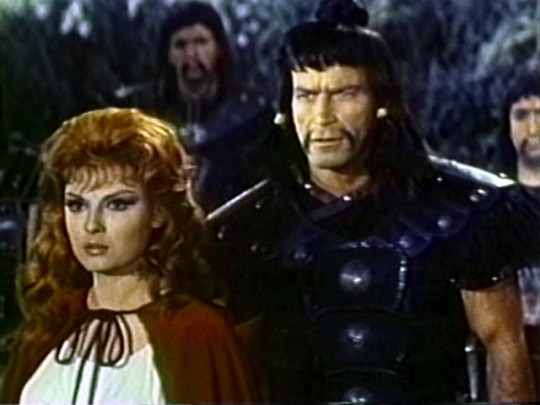
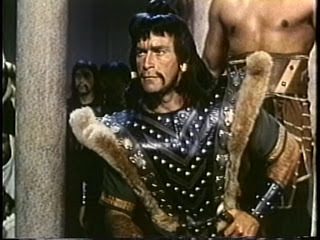
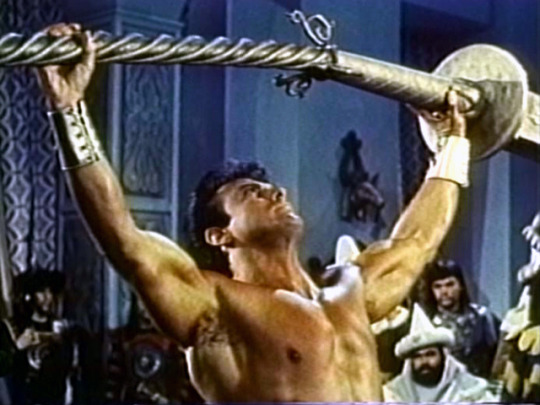
“Hercules Against the Barbarians” (US title) aka “Maciste nell'inferno di Gengis Khan“ with Mark Forest (Maciste), Ken Clark (Kubulai) and Gloria Milland (Arias)
In the 12th Century the Mongols invaded Poland. Led by Kubulai, the son of the Great Khan, the Mongols are defeated by the Polish army and the great hero Maciste. As usual Maciste is renamed Hercules for audiences in the US.
An enjoyable sword and sandal adventure movie.
2 notes
·
View notes